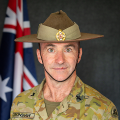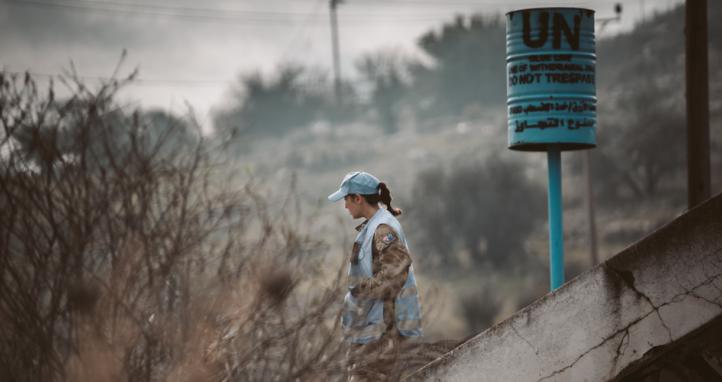Defence has unique challenges for service, but it is especially tragic when members experience psychological injury or mental health impacts from the unacceptable behaviour (UB) of others in uniform.
Defence defines UB as any behaviour in a Defence workplace or Defence-related situation “that is offensive, belittling, abusive or threatening to another person or adverse to moral, discipline or workplace cohesion.” It can include harassment, workplace bullying, any form of sexual misconduct, discrimination, abuse of power, inappropriate workplace relationships and conflict of interest, or violent behaviour.
These can be career damaging or ending issues, both for complainants and respondents. It can be especially hard for new recruits and learners to navigate. This is why careful and respectful complaint handling is essential. It also underlines the importance of training and prevention.
Training Transformation is about transforming ways we design and deliver training. At its best, it will also transform the character of individual soldiers, sailors, and aviators, ADF teams, and organisational culture. There are few more important areas than training that transforms behaviour in respectful directions. We need to honour the contributions of all colleagues rather than undermining confidence or slandering differences.
There are still members who bring cultural or psychological baggage, or memories of how they were treated, that misguides perceptions of appropriateness or what they think they can get away with. Command and instructors continue to shake their heads and ask how would learners think it was okay to share explicit photos in group chats; lie about who was drink-driving; make unwelcome lewd comments or sexual advances; sexualise a relationship between instructor and recruit, or make a member of a different religion or sexuality feel unwelcome, or belittle a learner for taking time to demonstrate a required skill?
Together with instructor colleagues at Defence Force School of Signals (DFSS) and other Training Establishments (TEs) who have recently done the Military Instructor Course or been following The Cove, I have learned a lot from Colonel Brad Kilpatrick CSC’s presentation on adolescent learning (and his summary PowerPoint, the more detailed original research thesis, and his recent Australian Army Journal article “The design and implementation of a youth learning framework within an ab initio officer training academy” detailing changes at ADFA.
Colonel Kilpatrick underlines the importance of adapting instruction for adolescents when 70% of the ADF’s full-time training force in 2021 were 25 or under. The ADELE course “Understanding our Younger Workforce” is also helpful. A key lesson I take away is that it is important to have empathy for different generational perspectives and learning styles, yet also exercise best practice in character formation to help all learners grow beyond their existing levels of empathy, judgement, and impulse control (and provide boundaries while these signs of maturity are still developing).
So, what directions have recruit schools and TEs taken in transforming training about UB? And what else is needed on the continuum?
Navy’s Recruit School at HMAS Cerberus prioritises attention to UB with a welcome brief by the Executive Officer, 3 workplace behaviour briefs including input from the Chief Warrant Officer (CWO), Sexual Misconduct Prevention and Response Office (SeMPRO) training on sexual misconduct and consent, and a 90 minute brief/workshop from Victorian Police Sexual Offences and Child Abuse Investigation Team (SOCIT).
The chaplain facilitates a 'Character Formation Day' including workshopped sessions on a basic Myers-Briggs Personality Type Inventory (MBPTI) introduction and screen with discussion on “knowing oneself”; grief, loss, and change; conflict; stress; ADF Values, UB, and relationships. Recruits also receive a brief introducing them to Navy’s “Social Mastery” framework (essentially social and emotional intelligence) that will form part of their ongoing professional development training and annual reporting. There are also other briefs throughout recruit training on themes like teamwork that remind recruits the importance of respectful relationships.
Sometimes supplementary training is set for those deemed to be not hitting the mark or who have been involved in lower level UB. This takes the form of additional mandated training experiences for recalibration before graduation that is tailored to the recruit(s) such as: Adele-based SBS inclusion courses (DPN only), visiting the Victorian Pride Centre, talking to HMAS Cerberus’ Muslim chaplain, and/or reflecting personally on inclusion and how a recruit’s attitudes need to change.
RAAF’s 1 Recruit Training Unit (1RTU) RAAF Base Wagga also offers SeMPRO training. The chaplain offers four 50-minute sessions in military ethics and a targeted session on “the emotional cycle of change” which helps recruits develop self-awareness of what is happening to them in recruit training.
Army’s 1st Recruit Training Battalion (1 RTB) Kapooka includes Learning Management Packages (LMPs) on leadership, character, and ethics over 26 hours of learner centred lessons delivered by 1 RTB chaplains, platoon commanders, and recruit instructor “corridor talks”. These include treatment of UB and bystander behaviour, and challenges to ethics of group pressures, situational stressors, and individual agency. A week before march-out recruits receive SeMPRO training.
Other Training Establishments (TEs) build on recruit character and UB training in different ways. Combined Arms Training Centre (CATC) TEs have 14 hours of character development in LMPs including scenario-based treatment of bystander behaviour with UB.
Army School of Transport implemented a character day with their holding platoon and then 2 evenings for Basic Driver’s Courses on ADF values and scenarios of bystander behaviour, alcohol misuse, and sexual misconduct including attention to toxic mateship. These topics were identified by the Commanding Officer (CO) as the most common and destructive misbehaviour patterns during COVID and then facilitated by the chaplain and/or platoon staff.
At the 5th Battalion, Royal Australian Regiment (5 RAR), Chaplain Steve Maggs spoke on emotional intelligence to soldiers because he believes that the associated development of empathy is one of the best ways of helping soldiers realise the impact UB can have on others.
At DFSS, we are identifying our most concerning UB issues and the most transformational training approaches to help prevent them. This is part of the CO’s strategy to ensure a safe and inclusive culture at the school and to model this for learners to take to their units.
Learners have been introduced to UB and bystander behaviour as recruits, but this information is part of the long days of what they might experience as “fire hydrant” input and cultural adjustments. Members conduct annual mandatory training including workplace behaviour and sexual misconduct, but these are two of a dozen packages and not usually done with team conversations.
The UB training transformation we are trialling in 2023 at DFSS has 10 tactical lines of effort to take understanding deeper:
- Begin DFSS holding platoon character training with a focus on ADF values, around which further training which addresses UB will be based.
- Invite local military police and/or VicPol SOCIT to present on sexual offences to DFSS’s holding platoon early in their time at DFSS to underline previous SeMPRO and workplace behaviour training.
- During initial employment training courses, facilitate an interactive, simulated, scenario-based guided discussion on “ADF Values & Behaviours” focused on the experience of learners in their barracks and field experience, and seeking to foster both individual learning for each member and collective training as a class.
- Adapt the material for a Cove Quick Military Education (QME) as an “ADF Values & Behaviours QME” that learners can access when unable to attend the group session (and that other units can access as a resource).
- Organise a mid-course “Pulse check” half-hour discussion for every course with a course manager or other staff to monitor morale, expectations, and behaviours rather than just leaving formal evaluation and feedback to the end of courses.
- Encourage early addressing of UB at the lowest possible level (since UB complaints often come closer to course completion).
- Identify learners who are displaying exemplary values who can be recognised and affirmed (i.e., rewarding good behaviour with recognition as per Colonel Kilpatrick’s advice).
- Identify key influencers among the learners in each troop to coach and support for fostering positive culture.
- Identify potential “learners of concern” showing any UB tendencies to follow up in individual counselling.
- Host a staff Professional Military Education session with Colonel Kilpatrick for DFSS staff to discuss and contextualise his adolescent learning lessons.
This will hopefully enhance organisational and lifelong learning and self-awareness that is intrinsically part of ADF’s Philosophy Doctrine of Learning.
Although the focus of content is UB-related, we trust the lessons will help prepare our members for a long career of respectful service and ethical decision-making for operations. We are seeking to address that which is unacceptable in the barracks for its own sake, but also to help them avoid anything that may lead to war crimes later.
Acknowledgments
In writing this article I appreciated conversations with DFSS staff and with Navy Recruit School Chaplain Matthew Campbell, 1 RTU Chaplain Mitchell Herps, 1 RTB Coord Chaplain Cesar Lopez and Defence Command Support Training Centre Coord Chaplain Stephen Maggs.









